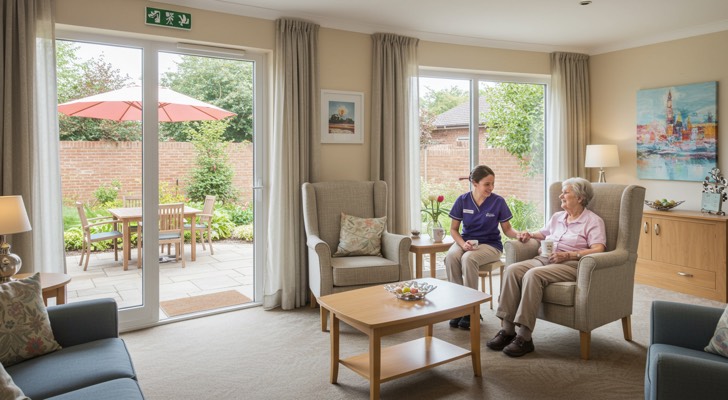Caring for a loved one with Alzheimer’s or another form of dementia can be both emotionally and physically demanding. As the condition progresses, many families begin to seek more specialized support. This is where memory care homes come in, a unique type of senior living designed specifically for individuals with memory impairments.

What Is a Memory Care Home?
Memory care homes are residential communities that offer a secure, supportive environment for individuals living with Alzheimer’s disease, dementia, or other forms of memory loss. These facilities are staffed by professionals trained to understand the challenges of memory-related conditions and how to provide compassionate, personalized care.
Unlike traditional assisted living, memory care facilities are designed to reduce confusion and prevent wandering, which is a common behavior in individuals with dementia. Floor plans are usually simple to navigate, doors are secured, and staff are available 24/7 to respond to emergencies and ensure safety.
What Services Are Offered in Memory Care Homes?
Memory care homes offer many of the same basic services as assisted living communities, such as meals, housekeeping, and help with daily activities like bathing and dressing. However, they also include services tailored specifically to cognitive decline.
Residents receive structured daily routines that help reduce stress and improve comfort. Therapeutic activities such as music, art, and memory games are designed to support brain function and emotional well-being. Many facilities also offer specialized programs to enhance social engagement and maintain a sense of purpose, even as memory fades.
Security is a top priority. In addition to secured entrances and exits, many memory care communities use monitoring systems to help prevent wandering and ensure residents are accounted for at all times.
Who Needs Memory Care?
Memory care is intended for individuals who have been diagnosed with Alzheimer’s, dementia, or similar cognitive impairments and who can no longer live safely on their own. It is also appropriate for those who may already be in assisted living but have begun to show signs of advanced memory loss that require more focused attention.
Common signs that someone may need memory care include frequent disorientation, wandering, aggression or anxiety, difficulty with basic tasks, or increased caregiver stress at home.
How Much Does Memory Care Cost in the U.S.?
Memory care is more expensive than traditional assisted living due to the higher level of specialized care, security, and staff training involved. On average, the monthly cost of memory care in the United States is around $6,000. However, it can range from $4,000 to $8,000 or more depending on the location, facility amenities, and level of care required.
Larger metropolitan areas or regions with a higher cost of living tend to charge more. States like California, Massachusetts, and New York often report above-average rates, while more rural or southern states may offer more affordable options.
Many memory care communities charge a base monthly fee that includes housing, meals, and basic care. Additional fees may be added for more intensive services or one-on-one support.
Is Memory Care Covered by Insurance or Government Programs?
Traditional Medicare does not cover the cost of memory care housing, although it may cover some medical expenses incurred while living there. Some families use long-term care insurance, which can cover a portion of memory care expenses if the policy was purchased ahead of time.
Medicaid may help pay for memory care in some states through special waiver programs, but availability and coverage vary. Veterans and their spouses may also qualify for financial assistance through the VA’s Aid and Attendance program.
In many cases, families use a combination of personal savings, retirement income, home equity, and family support to cover the cost.
Choosing the Right Memory Care Home
Finding the right memory care community involves more than just comparing prices. It is important to visit several facilities, talk to the staff, and observe how residents are treated. Look for a calm, structured environment, staff with dementia-specific training, and a focus on both safety and emotional care.
Ask about caregiver-to-resident ratios, daily activity programs, family involvement, and emergency protocols. A good memory care home should feel secure but also welcoming, with a strong sense of compassion and routine.
Conclusion
Memory care homes play a vital role in helping individuals with dementia live with dignity, safety, and support. While the cost can be significant, the peace of mind and specialized care they offer can make a tremendous difference for both the person living with memory loss and their loved ones.
If you are exploring memory care options, take the time to understand what each facility provides, how pricing works, and what fits best for your family’s needs. Quality care is not only about cost, but about comfort, safety, and respect for every stage of life.
 © Copyright 2025 Shirabe-ru | Terms | Privacy Policy | Contact Us
© Copyright 2025 Shirabe-ru | Terms | Privacy Policy | Contact Us


